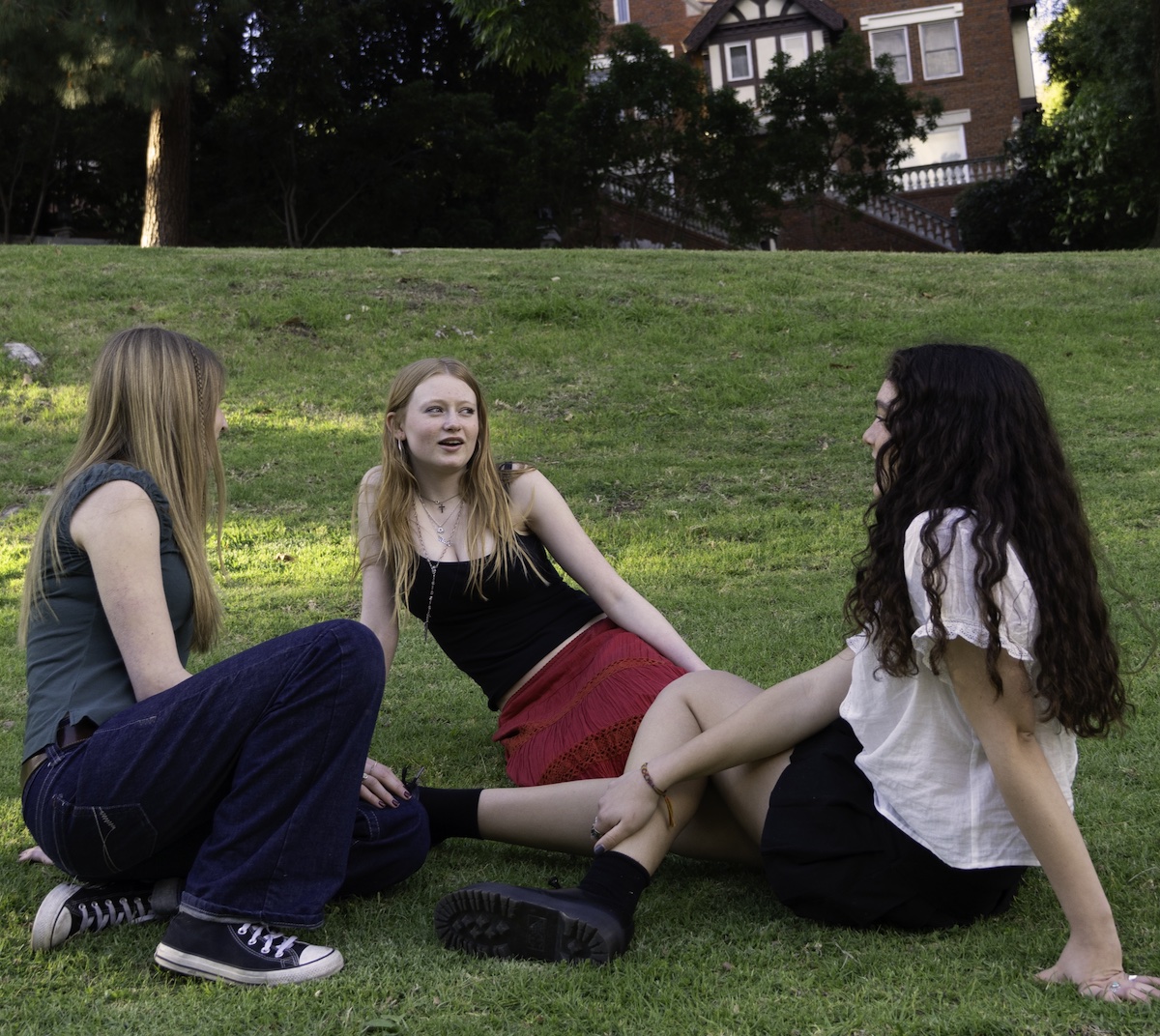Francesca ’25, Riley ’23 and Jade ’25

Marlborough has become notable through its reputation for a rigorous and efficient focus on college preparation. However, centering focus on students’ futures can sometimes gets in the way of rejuvenating one’s mental and physical health during spring and summer breaks.
The UltraViolet sent out a survey over spring break to find out how students are using breaks now, and how this differs from moments in the past.
Some students’ summer breaks used to include family time, such as spending time with grandparents and relaxing.
The act of taking time to rest is vital for a person’s mental health and can decrease stress levels. As a study by the University of California, Berkeley states, nights without a recommended amount of sleep can cause a 30% rise in anxiety levels.
According to the CDC, the recommended amount of sleep for adolescents ages 12-18 is 8-10 hours per night. While following a consistent sleep schedule during the school year proves to be difficult for many students, breaks allow for optimum sleep that alleviates stress and promotes a healthy mental state.
Physical activity is also known to reduce stress and anxiety, improve mood, decrease blood pressure, provide chronic pain relief and boost immune health.
A study published by Harvard University found that “Exercise reduces levels of the body’s stress hormones, such as adrenaline and cortisol. It also stimulates the production of endorphins, chemicals in the brain that are the body’s natural painkillers and mood elevators.”.
Physical and social activities apart from the busy school year were a common theme for past breaks according to respondents of our survey.
“In the summer, I spend most of the time at the beach with my friends. I basically spend all of my free time biking with them on the strand or getting brunch,” Lara ‘25 said. “I also used to do Junior Lifeguards in Manhattan Beach every summer, so the vast majority of my time was spent on either the beach or in the ocean.”
However, more and more breaks are being used as times to be productive. From touring college campuses to staying on top of school assignments, students save time for work along with relaxation. Many students plan on spending their summer breaks in hopes of benefiting their futures.
“A couple weeks into summer, I’m doing a medical internship program for emergency medicine that lasts for about 3 weeks,” Lara ’25 said.
As internships are often used to explore career paths, completing internships over break can help students figure out future pursuits.
Due to the intensity of the Marlborough curriculum during the school year, few students have enough time to pursue extracurricular activities. Some students take advantage of their time away from school to explore their passions.
“I am choosing to spend my summer break doing ballet summer intensives because, during the school year, I don’t have the time to focus on ballet,” Ellis ‘27 said. “In summer, there is no school in session so I am able to do ballet training.”
In addition, Marlborough offers classes for credit in summer programs that allow students to get ahead of their graduation requirements by taking courses like Geometry and Emergency Preparedness & Water Safety. Taking Geometry over the summer is a popular choice for many students.
“I would like to be in Algebra 2 next year, hence the Geometry credit for 60% of my summer,” Nina ‘26 said.
Students taking Geometry over the summer must receive an 80 percent in the class to move up to Algebra II with Trig in the Fall. It’s designed to challenge students and isn’t a class that students will automatically pass.
“Sitting in a hot classroom speed running geometry isn’t anyone’s dream summer,” said Nina ’26. “I love math, so I am semi-excited for advanced math, but the idea of the class sounds daunting.”
Meanwhile, incoming seniors are beginning to think more about colleges and the work surrounding their applications, such as completing essays, maintaining good grades and charity work.
In contrast, other survey respondents stated that they would prefer not to have to deal with the college application process over the summer.
“I just wish I didn’t have to think about colleges at all,” Casey ‘23 said. “It’s not exactly fun to think about when we’re supposed to be ‘on break.’”
Another student mentioned the importance of using the breaks as times to relax and reset, before returning back to the stresses of schoolwork.
“Our daily lives as Marlborough students are so hectic and busy that it is important to give our bodies and minds time to rest and rejuvenate,” Minerva ‘27 said.
Dean of External Student Programs Eric Reinholtz said there are a couple of reasons why Marlborough students often choose to spend their break time.
“While Marlborough certainly has a long-standing tradition of academic rigor of which we can all be proud, I think that the two factors driving many choices regarding decisions about summer programs are better understood in terms of either ‘personal growth’ or ‘college admissions.’” Reinholtz said. “The former is Marlborough at its best: I want to learn more about something I studied this year or something I’ve always been curious about. The latter is a more transactional posture: what can I do this summer that will raise my chances of getting into Stanford or Princeton from 1-in-20 to 1-in-19.”
The UltraViolet survey results are in line with Reinholtz’s assessment. “I want to get as much of a head start as possible on the college application process and spread my workload for next semester,” Casey ‘23 said.
However, Reinholtz believes that finding a balance between productivity and rest is crucial.
“Plan on having a growth activity: something that allows you to grow. But you need to give yourself time to be a teenager and have a little fun if you can. These are years that you will never get back,” Reinholtz said.
Many students find ways to relax during the summer, traveling and hanging out with friends in the midst of completing programs.
Within this balance, Reinholtz emphasized the importance of completing summer programs that focus on topics that students feel passionately about. He stated that participation in a program that aligns with a student’s interests is more important than involvement in activities purely for college admissions.
“Consider an activity that allows you to learn about the one thing you need to know best: yourself… Get out and meet people through community service or some other form of activism,” Reinholtz said.
Alternatively, some students have indicated that they plan to work at a job over the summer. Reinholtz indicated the importance of gaining this real-world experience.
“If you really want to develop your capacity for empathy, instead of just talking about your privilege, go experience first-hand what it’s like not to have privilege…” said Reinholtz. “Understanding how the vast majority of people in the world live might just be the most valuable summer you ever had.”








